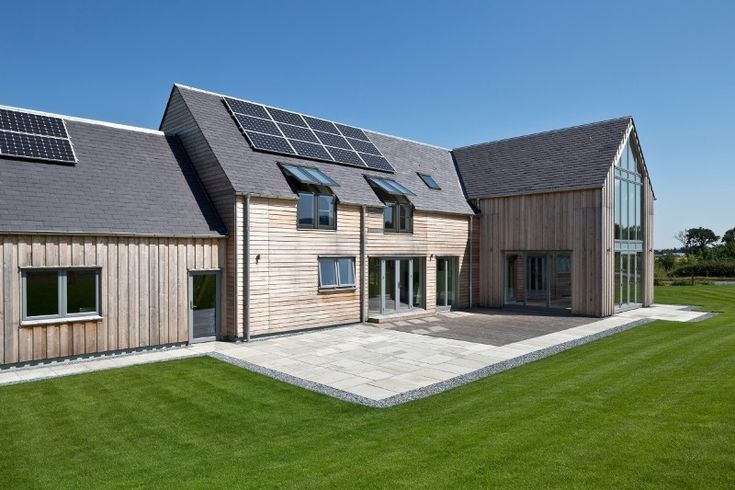In an age where environmental sustainability and cost savings are at the forefront of modern living, energy efficient homes are becoming more than just a trend—they are a necessity. With rising energy prices and increasing concerns over climate change, homeowners and builders alike are looking toward sustainable solutions that reduce environmental impact while offering long-term financial benefits.
What Are Energy Efficient Homes?
Energy efficient homes are residential buildings designed to reduce energy consumption while maintaining or improving the overall comfort of the occupants. This is achieved through a combination of smart architectural design, eco-friendly building materials, and energy-saving appliances. These homes are constructed or retrofitted to use less energy for heating, cooling, lighting, and appliances, which helps lower utility bills and carbon footprints.
Why Energy Efficiency Matters
The benefits of energy efficient homes go beyond lower energy bills. Here’s why more homeowners are making the switch:
1. Reduced Utility Costs
One of the most immediate benefits of an energy efficient home is the significant reduction in monthly utility bills. By using better insulation, energy-efficient windows, LED lighting, and smart thermostats, these homes require less energy to maintain a comfortable indoor temperature and lighting.
2. Environmental Impact
Energy efficient homes help reduce greenhouse gas emissions and pollution. By consuming less energy, homeowners rely less on fossil fuels and contribute to a cleaner, greener planet. Over time, widespread adoption of energy efficient homes can play a major role in mitigating climate change.
3. Increased Property Value
As awareness grows, energy efficient homes are becoming more attractive to buyers. Homes with energy certifications such as ENERGY STAR or LEED often have higher resale values and sell faster in the real estate market. Today’s buyers are looking for sustainable features that offer long-term value.
4. Health and Comfort
With better air sealing, insulation, and ventilation systems, energy efficient homes offer improved indoor air quality and more consistent indoor temperatures. This leads to a healthier and more comfortable living environment year-round.
Key Features of Energy Efficient Homes
To achieve optimal energy efficiency, certain features and systems must be incorporated into the home’s design and construction. These include:
- High-performance insulation: Proper insulation in walls, attics, and floors helps maintain consistent temperatures and reduce heating and cooling needs.
- Energy-efficient windows and doors: Double or triple-pane windows with low-emissivity coatings minimize heat transfer and prevent air leaks.
- Solar panels: Harnessing the sun’s power can significantly reduce electricity bills and dependence on grid-based energy.
- Smart home technology: Programmable thermostats, energy monitoring systems, and automated lighting help control energy use more effectively.
- Energy-efficient appliances: ENERGY STAR-rated refrigerators, washers, dryers, and water heaters consume less energy and water.
How to Make Your Home More Energy Efficient
If you’re not building a new home but want to improve your current one, here are a few steps you can take:
- Conduct an energy audit: A professional audit identifies areas where your home is losing energy and recommends upgrades.
- Seal leaks and insulate: Check for gaps around windows, doors, and ductwork and seal them. Upgrade insulation where needed.
- Upgrade lighting: Switch to LED bulbs, which use up to 80% less energy than traditional incandescent bulbs.
- Install a programmable thermostat: It helps manage heating and cooling more efficiently based on your schedule.
- Replace old appliances: Modern energy-efficient appliances use significantly less electricity and water.
The Future of Energy Efficient Homes
As building codes become stricter and awareness grows, energy efficient homes are expected to become the standard rather than the exception. Governments around the world are offering incentives and tax rebates for homeowners who invest in energy-saving upgrades. Advances in green technology continue to make energy efficiency more accessible and affordable.
Moreover, with the growing interest in net-zero homes—homes that produce as much energy as they consume—energy efficiency is just the beginning. These homes combine energy-saving designs with renewable energy sources like solar panels and geothermal systems to achieve complete sustainability.
Conclusion
Energy efficient homes are a smart investment for both homeowners and the planet. They offer reduced energy bills, improved comfort, and long-term environmental benefits. Whether you’re building a new home or upgrading your current one, focusing on energy efficiency is a step toward a sustainable and cost-effective future.
If you’re considering making your home more energy efficient, now is the perfect time to take action. With modern solutions and available incentives, your dream of living in a greener, more sustainable home is well within reach.

